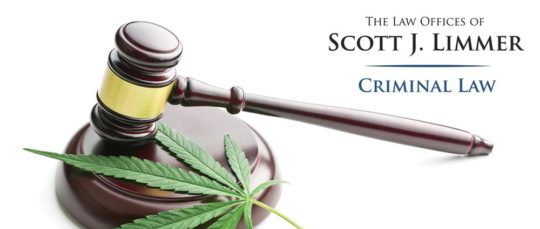UPDATE: Approved September 30, 208, California’s AB-1793 will resentence cannabis convictions and requiring the Department of Justice to review and provide prosecuting agencies with a list of cases that are eligible for recall or dismissal of sentence, dismissal and sealing, or redesignation. The prosecution has a year, until July 1, 2020, to review said cases and determine whether or not to submit a challenge.
In November 2016, California voters passed Proposition 64, more fully known as the “Control, Regulate and Tax Adult Use of Marijuana Act,” which immediately decriminalized most adult personal possession and use of marijuana.
As long as the marijuana is grown or consumed within the new law’s limits, by persons age 21 and up, without violating health and safety codes, those possessing, raising or using it commit no crime. Even if a violation occurs, most penalties have been reduced.
Yet many thousands of Californians had been previously convicted of marijuana offenses, many of them felonies. Conduct that formerly could bring substantial prison time may now go unpunished, but what can be done to make life easier for those with marijuana-related criminal records, with all the attendant consequences to such persons’ prospects for employment, education, housing and related areas?
In four populous California counties (Los Angeles, San Francisco, Sacramento and San Joaquin), local prosecutors and public defenders have teamed up in a cooperative effort to discard or downgrade past convictions.
They are being assisted in that effort by a nonpartisan non-profit group, Code for America, which aims to help improve government functions through technology. The group developed a program, Clear My Record, designed to simplify the process of identifying persons eligible for such relief and getting old marijuana-related felony convictions expunged or reduced to misdemeanors.
The first joint campaign began in San Francisco in May 2018, where the city’s district attorney was the first nationwide to announce his office would systematically work to expunge or reduce old convictions. Up to that time, few individuals had availed of a petition procedure for removing old charges, probably due to daunting paperwork in a complex multi-step process, in which private attorneys frequently had to be called in to help.
The algorithms in the program developed by Code for America greatly simplified the process, producing completed motions ready for court review in mere seconds. This greatly reduced the administrative burden on prosecutors’ offices, which under a state law enacted in 201x were required to search out old convictions that might be eligible for expungement or reduction. By February this year, the San Francisco district attorney reported expunging or reducing over 8,000 marijuana convictions.
Two months later, Los Angeles County (America’s most populous, with over 10 million residents) and San Joaquin County announced they’d work with Code for America and local public defenders to adjust a combined 54,000 old convictions; similar efforts in Sacramento County removed or downgraded about 5,300 convictions.
California took another useful step: under a law enacted last October, the state Department of Justice must sift through old cases to find individuals eligible for have their convictions reviewed, and notify local prosecutors before this July. Then, unless prosecutors voice specific reasons, those named automatically become eligible to have their records revised. Other localities and states, including Denver and Seattle, have also taken steps to assist expungement.
As more states and localities adopt marijuana decriminalization/legalization laws, two questions seem obvious. First, as formerly illegal practices no longer lead to jail, shouldn’t reformers also promote eliminating the criminal records of persons once incarcerated for that conduct? Second, shouldn’t more prosecutors participate in efforts like those in four (out of 58) California counties?
About the Author
Scott J. Limmer is a New York criminal attorney practicing primarily in Nassau, Suffolk, and Queens counties. You can contact Scott anytime. He is available 24 hours a day, 7 days a week, year-round and your initial consultation is free.
